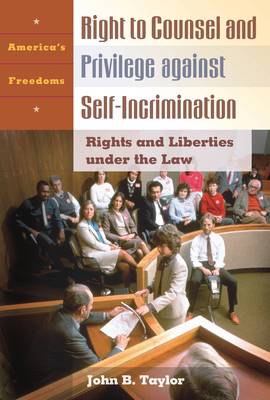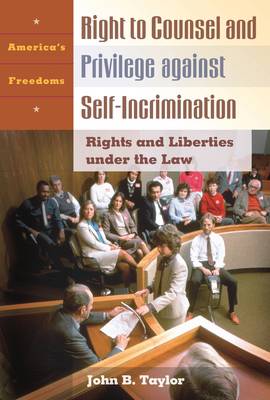
- Retrait gratuit dans votre magasin Club
- 7.000.000 titres dans notre catalogue
- Payer en toute sécurité
- Toujours un magasin près de chez vous
- Retrait gratuit dans votre magasin Club
- 7.000.0000 titres dans notre catalogue
- Payer en toute sécurité
- Toujours un magasin près de chez vous
The Right to Counsel and Privilege Against Self-Incrimination
Rights and Liberties Under the Law
John B TaylorDescription
Right to Counsel and Privilege against Self-Incrimination: Rights and Liberties under the Law explores the origins, historical development, current status, and future of two rights intended to protect persons accused of crimes. Two shocking case studies--Powell v. Alabama and Brown v. Mississippi--reveal the brutal injustices suffered by Southern blacks in the 1930s and explain how the Supreme Court made landmark decisions to expand the coverage of the right to counsel and the privilege against self-incrimination.
After a brief review of the English and colonial origins of these rights, a careful analysis of each focuses primarily on the revolutionary cases of the 20th century that produced a convergence of these rights in the famous case of Miranda v. Arizona (1966). The work examines subsequent cases and discusses issues that lie ahead, including those related to the war on terror.
Spécifications
Parties prenantes
- Auteur(s) :
- Editeur:
Contenu
- Nombre de pages :
- 399
- Langue:
- Anglais
- Collection :
Caractéristiques
- EAN:
- 9781576076187
- Date de parution :
- 01-10-04
- Format:
- Livre relié
- Format numérique:
- Genaaid
- Dimensions :
- 161 mm x 237 mm
- Poids :
- 684 g

Les avis
Nous publions uniquement les avis qui respectent les conditions requises. Consultez nos conditions pour les avis.






